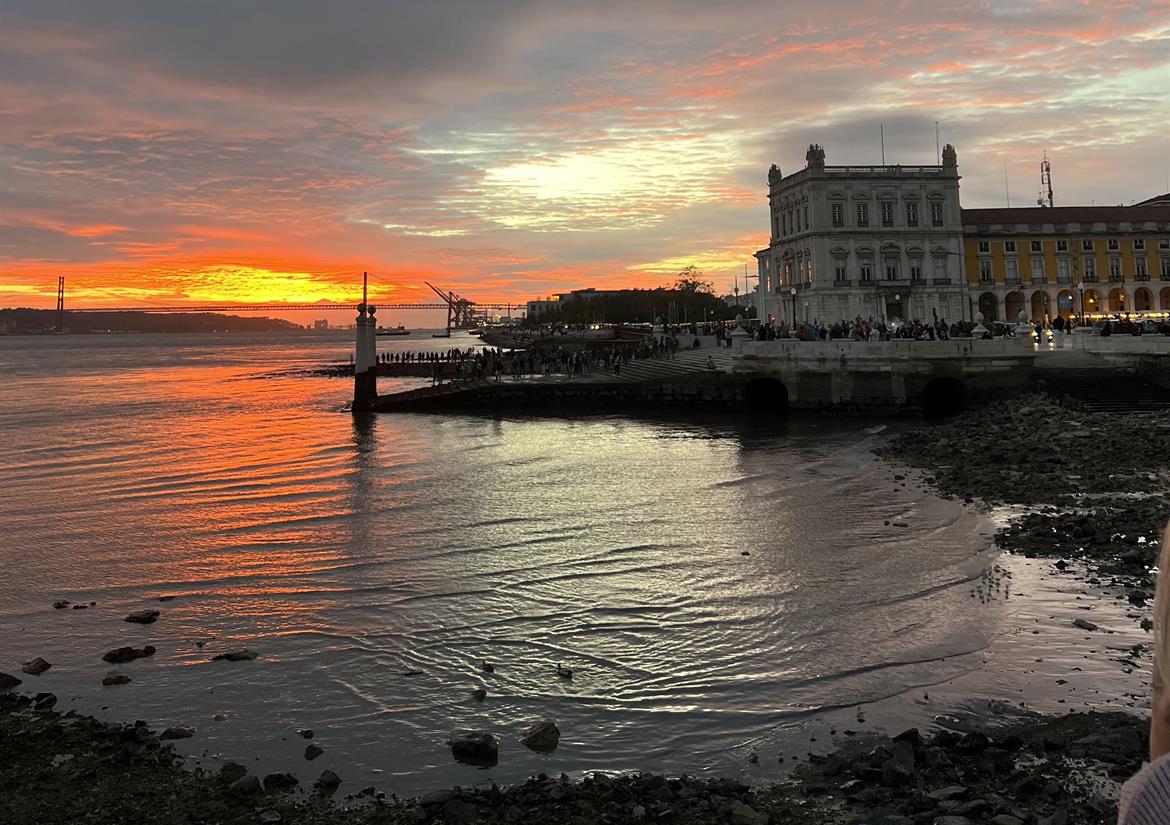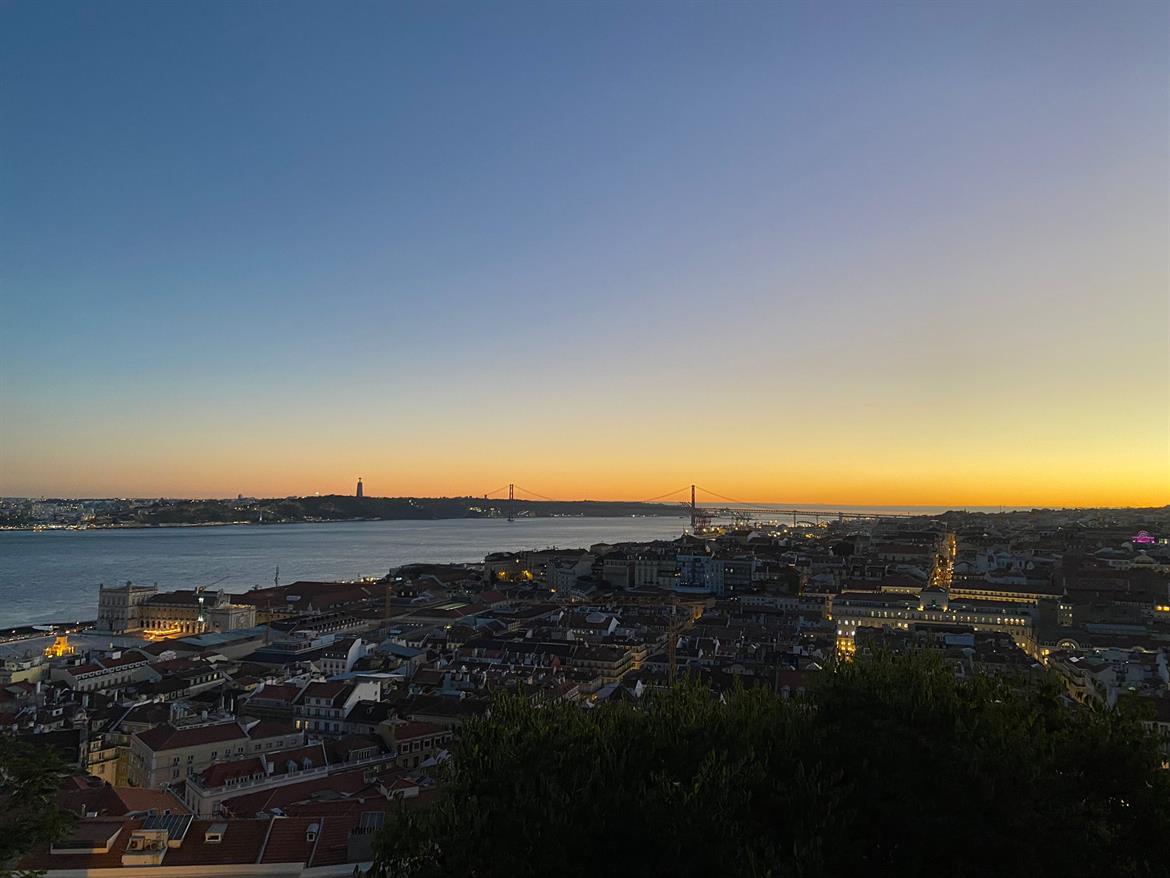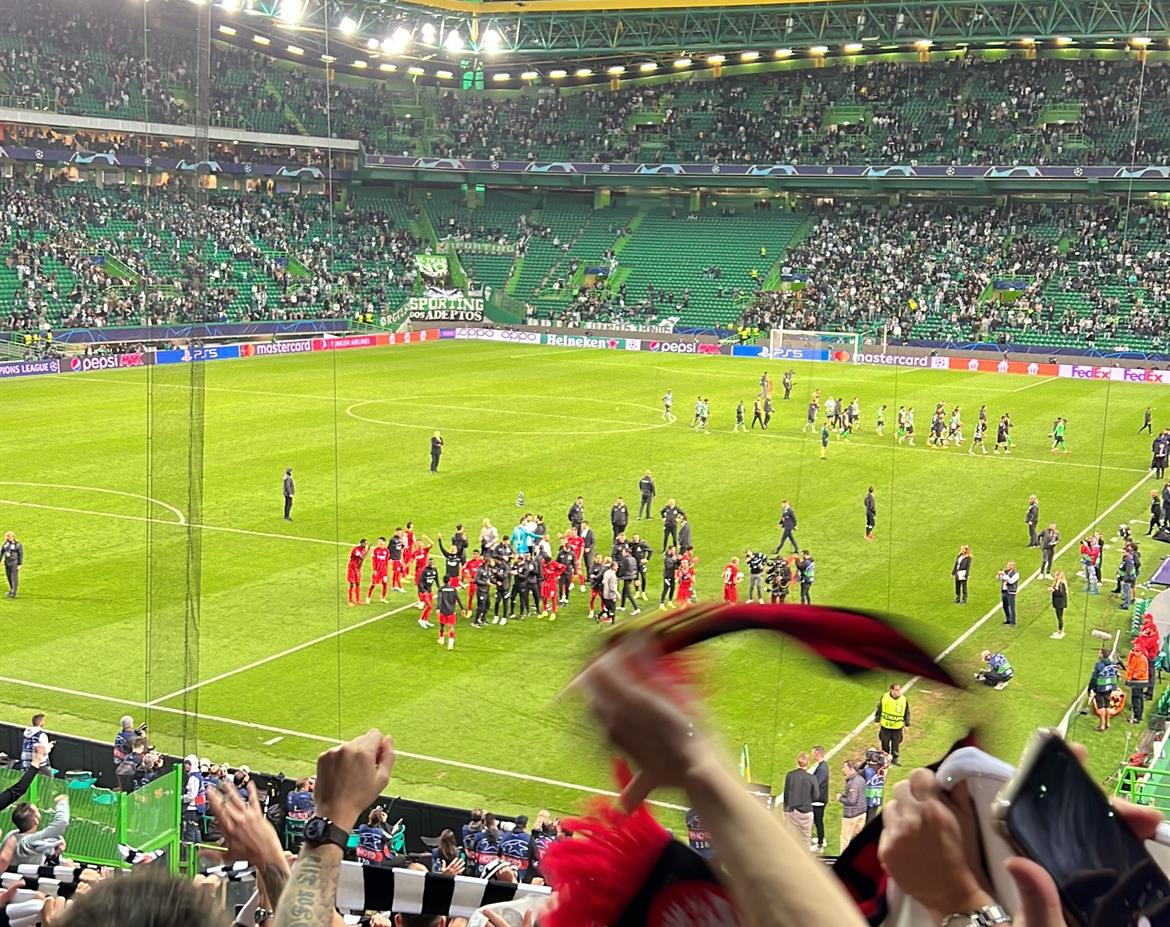
Graduate student Alexander Schießer reports about his semester abroad at the Instituto Universitário de Lisboa (ISCTE) in Lisbon, Portugal. In the article he writes about his experiences, his courses and specialization modules at ISCTE, describes the differences to studying in Germany and explains why he would choose a semester abroad in Lisbon again anytime.

Internship or a semester abroad again? At the accadis Hochschule, you are spoiled for choice in the Master's degree program, and this question kept me busy for quite a while. After much deliberation, I finally decided on a semester abroad, precisely because this was not possible during my Bachelor's degree due to Corona. The choice quickly fell on Lisbon: From acquaintances I heard only positive things about the city and also about living and studying in Portugal.
Furthermore, some accadis graduate students from previous years completed their semester abroad at ISCTE in Lisbon, and at the latest then I knew that this was the right decision. Although ISCTE is not a partner university of accadis, the application process was easy and fast. Britta Laudon, Head of International Programs at accadis, nominated me and three other fellow students for the Freemover Program and so we were accepted for the semester at ISCTE without any complications.
What is special about ISCTE?

ISCTE is divided into five different schools: Business School, Social Sciences, Sociology and Public Policy, Technology and Architecture, and Institute for Public and Social Policy. My fellow students and I completed our semester abroad at ISCTE Business School because the courses offered perfectly matched the content we had already acquired at accadis. The fact that ISCTE Business School was voted the third best business school in Portugal in 2022 by the Financial Times and made it into the top 100 worldwide also reinforced our decision.
ISCTE Business School has some unique features - despite the size of the university, the lecture groups are relatively small (30-50 students) and the lectures are face-to-face, similar to accadis. The lecturers also always have an open ear for the students' concerns. There are also many international students, which brought us into contact with many different cultures and characters.
It is important to know that in each course there is the possibility to choose how the assessment should take place: Students can choose between a "continuous assessment" and a written exam at the end of the lecture. Almost all students choose the first option, where 50% of the grade is generated during the semester and includes components such as group work, presentations, or assignments. The other 50% then results from a test at the end of the semester, which is lower in difficulty than the final test without the prior continuous grading. In addition, many of the end-of-semester tests are "open-book" tests, which means that you are allowed to refer to materials covered in lecture during the exam.
What courses and concentrations are offered?

The emphasis of the Master's degree programs at ISCTE Business School are in Management, Business Administration, Economics or Finance. By passing the courses offered, one receives either three or six credits per course. Since I needed a total of 20 credits for my semester abroad, I chose the Strategy and Corporate Development, Innovation Management, and Strategic Marketing courses, for which I received six credits each, and the International Management Ethics and Social Responsibility course, for which I received the remaining three credits.
In most of the modules, much of the content was already known from previous modules at accadis and could thus be optimally consolidated. The Innovation Management module was new - here you could master the course very well even without prior knowledge. In general, all modules at ISCTE are very practice-oriented. In all modules, several guest lectures are held by people from the field.
We were also often given practical tasks, such as developing solutions for a new marketing strategy for LIDL, which we then pitched to representatives of the company. However, these group assignments, which are assessed in continuous assessment, sometimes have the disadvantage that the level within the group varies greatly, often resulting in more work than initially anticipated. Nevertheless, I would recommend to choose this type of assessment in every course, because it makes the exam at the end easier and you don't get into any learning stress at any time, but continuously and very distributedly complete assessments.
Differences to studying in Germany

In general, there are many differences between studying in Germany at accadis and in Portugal at ISCTE. In Portugal, a lot is done "at the last minute" and so you experience very different work attitudes, especially in group work. However, such experiences also characterize the semester abroad and generally you are surrounded by more students from all over the world than when studying at accadis in Germany.
There is a very large and beautiful library and also many parties and events directly at the university. In addition, ISCTE has several dining halls, where you can sometimes eat throughout the day.

Regarding the exams, it can be said that learning and working on homework or presentations is more distributed than in Germany. There is already an examination phase in mid-October, during which some exams are also taken, and the Strategy and Corporate Development module, for example, was already finished in October, after about five weeks. So you have to do a lot of exams from the beginning of the semester, but as already mentioned, the learning is more spread out in time.
In some cases, the organization of the exams themselves can also differ greatly from the studies at accadis: For example, one exam was scheduled for eight o'clock in the morning, but no lecturer showed up at 9 o'clock and at about 9:30 the course was informed by a fellow student that the exam would be spontaneously taken online. In the end, you just take life in Portugal more casually and with time you get used to it.
Life in Lisbon

In general, it is very easy to live in Portugal and Lisbon! It is much warmer than in Germany - even in December the temperatures are still between 15 and 20 degrees during the day. Since we arrived a few days before the start of the semester, we were able to enjoy the - in comparison to Germany - much warmer summer to the fullest and so it was optimal that the first beaches can be reached in about 20 minutes by train from Lisbon. This also offers many leisure time activities - even the ISCTE offers a surfing course during the introductory week of the semester!
Only the search for an apartment in Lisbon is a bit difficult - here you should start early. After a long search, we finally found two apartments in the same building, in which we respectively lived in twos. The apartments were in the best location: right next to one of the many viewpoints over the city and the famous river Tejo. From our apartment, the city's varied bars and restaurants were within a few minutes' walk, and the famous Bairro Alto district, where there is a lively nightlife, was also close by. In general, there are many neighborhoods in Lisbon, all of which have their own character and special charm, making Lisbon a diverse city with a great lifestyle - especially for students.

A special highlight of the semester abroad for me was to experience the last Champions League group game of Eintracht Frankfurt live in the Sporting Lisbon stadium and to be there when Eintracht managed to enter the Champions League round of 16 with a victory for the first time in the club's history!
My conclusion
My semester abroad in Lisbon was definitely a very enriching experience, and I would choose it again anytime. Both living in a country with a different mentality and studying at ISCTE broadened my personal horizon a lot. I can only recommend Lisbon to anyone who is planning a semester abroad in a southern European country!
Alexander Schießer, Global Sports Management 2023